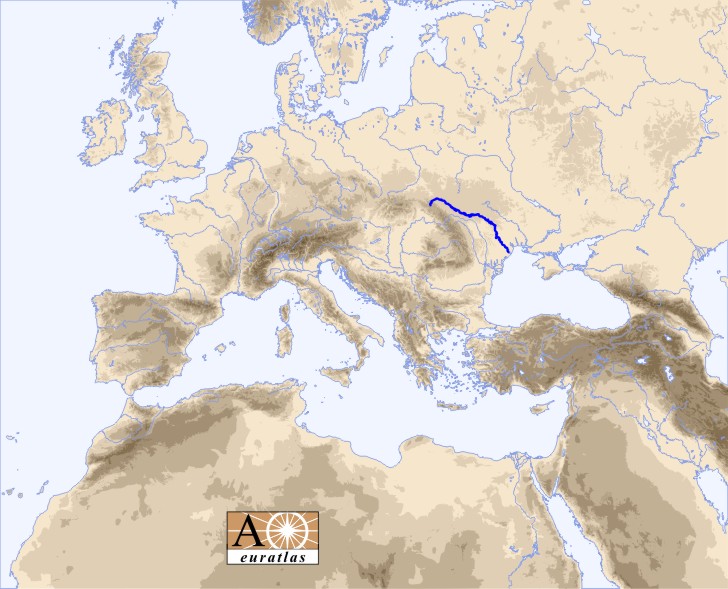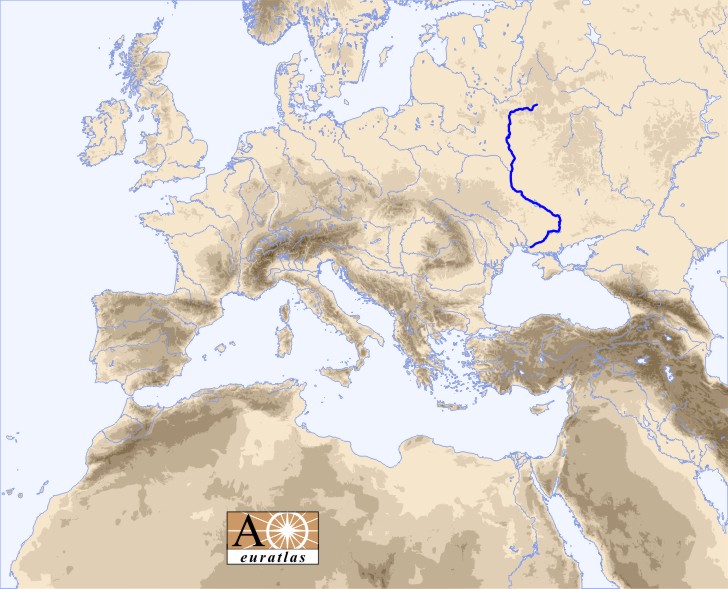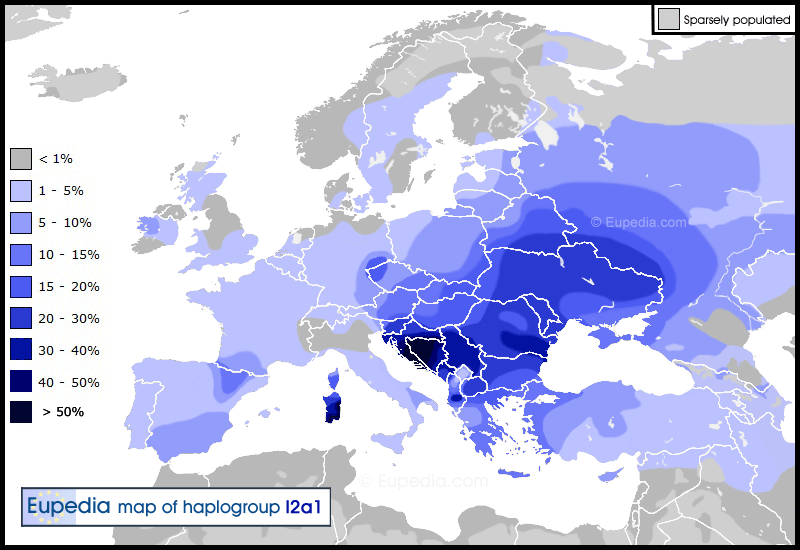Rascian and Russian are same troibal name as Thracian
as we can see in Etruscans who are called Tyhrsenians by Greeks while they call themselves Rasena
tribal name Tyhrsenian/Rasena that is Thracian/Rascia/Russian corresponds to R1a spread...
what confuses me is Slavic language... where did it come from?
Etruscans are likely R1a and speak non-IE... thus R1a in Asia minor didnot speak IE
Thracians speak IE
also, why did Celtic languages disappear almost completely in continental Europe?
How yes now
Ρωςς means red russo rugo means also red-blonde in Greek
Ross are mentioned that they ride Volga river from baltic and reach Ucraine,
in fact first Ross was Kiev according Byzantines
Ross was the Viking invasion in Ucraine the amber trade river road,
no connection with etrurians or thracians,
in fact it is more possible that Thracians were goths than Vikings or Russians
Since it looks important to many here, I will say it - it is indeed probable that some I2 branches entered Europe (including Balkans) before E-V13. We can see it by different I2* subclades found in Europe, with highest frequency in Crete (5-6%). There is also I2a* in Alpine regions which appears to be very old, and a couple of other older I2 branches, all found in Europe.
But now look at this, we have I2a2a-Disles only found in British Islands and I2a2a-Dinaric is on opposite side of Europe! What I want to say is that each of those branches from above had their own history. And there are even more I2a1 with its own 6 subbranches, than there is I2a2b-Isles, I2b1, I2b2 and others are also possible.
In order to understand what happened you have to analyse every I2 branch separately, and if someone just says that whole I2 are these or those people I think he will never find the truth.
And at the end, whatever happened with I2 and E-V13, discussion about which Y-DNA has more rights is completely out of the line. No people will live better because genetic research shows this or that.
read about E-V13
it is kush Etiopean it is mentioned in hommer
went at 3000 Bc to Cyprus
enter Peloponese at 2000 Bc area Lerna
enter north balkan later
http://dienekes.blogspot.com/2008/07/expansion-of-e-v13-explained.html
I2a could be older
Now about Serdi Sherdana Curdi Sard-eis surdi etc
the area of Greek Makedonian city was phylakai guardians, soldiers,
in thracian or pelasgic name of these people was Surdi
later the romans name that area Servia
pelasgic name for guardians was Ssudcha suda
Surdi Serdi sherdana Curdi (kurdistan) sardeis could mean castle man or r-l Seldati soldiers
cala cale cele celi is the ancient Greek Κελλι or Tsalli Calli
Kallas fortres people
turkish Kule
etc
Caledoni from Cal + edi means the castle people, the city people
as also Chelidoni -> celidoni
although some linguists connect it with snail from Helix
simmilar is in Greece in area were Surdi lived Servia town the near village Γουλαι Gule - Kule
so the Surdi were the guardians of Kulle
and the people of Gule Guledoni
about Etruscans they are considered as pelasgic relatives as also phillistines and ancient Illyrians,
the
Racians maybe is not connected with Thracians
but with rasa ( a kind of dress black color, that even today phillistines wear it)
or rakos (the remains of an ex being or thing)
Rakianoi in Greek means the rest of something that ones existed
or Ragians Regians
means that they came from Kings
or Rachians pontic Greek Rasopulo
in Greek means the ones who live in mountains
or r-l as usually in pelasgic
Lacians t-s as pelasgic always did thalatta = thalassa
Latians meaning that they were the original Latins
Lacians simmilar Lacons -.> lakonians la ko no city of stone La = stone in pelasgic
As you see it is more possible that Racians means ex Latins than thracians,
cause we know that thracians never pass west adriatic italy as a major devastation
but expanded north of balkans in far ancienty
I believe that connecting Rascians with thracians is a mistake,
first we must find what it means in their language,
How yes no
Sorviodurum roman soldiers area Servia in Greece Surthia (th as in they d)
Licos La is stone in pelasgic Greek ko no is pyramid or city is pelasgic cono
Licos could means pyramid in a relative pelasgic language or stone city Greek Lakon Lacion larissa
Lissos pelasgic la = stone in doric is Li-thos Lissos means stone fortification rock that reminds fortress
natural rocky fortress, -issa = fortification
also als = sea alissos means fortification in sea Lissos ss->c Licos could mean sea fortress
Cimbri is cyprus CIMBRIS but also copper pelasgic Κουπρ-ος Cypr-os Cumbri greek chalkos
Lycia could means wolf Λυκος also Λουσια area of bath, wash, also same as Licos stone city
Veneti are not Illyrian, they might be somewhat related... but Albanian language is also related to Balto-Slavic languages...
here is historic proof of link between Veneti and Slavic people
in fact modern albanian language is a mystery
Read Gustav Mayer
seems it is connected most with Romanian language
after with turkish
after with slavic
then with Greek Koine
7% is aryan (pelasgic armenian anatolian persian thracian etc)
11% is unknown origin some albanians linguists connect it with egyptian and I believe it is correct cause also in Greek language is a connection with Kushetic but a good linguist could find more cause unknown origin means either Mayer did not know or they come from a very past or very far
"(Dr Kaplan Resuli-Albanologist, academic and Albanian historian):
Modern day Albanian has incorporated words from the countries they inhabited as they passed through and finally settled in what is today modern day Albania.
"On the territory of today's Albania, as has already been confirmed by the most distinguished world scholars, first settled the Slavs. In 548 A.D., they enter also in Durrachium. The Albanians come via Transylvania (Romania) and Bulgaria much later, IX-X century.-->
Our knowledge of Albanian, except for a few words, extends back only as far as the fifteenth century of our era, and when we first meet with it, the vocabulary is so mixed with Latin, Greek, Turkish, and Slavonic elements owing to conquests and other causes that it is somewhat difficult to isolate the original Albanian.
(Albert C. Baugh, Thomas Cable, A History of the English Language, p 25)
``As to the character of the Albanian, it may be affirmed that more than a third of its primitives are Greek roots reduced to their primitive, barbarous and monosyllabic form; it is equally true that the
Greek words in Albanian are more closely allied to those in the Aeolic dialect
(Conrad Malte-Brun, Universal Geography, p 109 )
as you see modern albanians are simillar Greek Ydna in majority
but as dienekes found their language arberesh comes from romania,
cause Arberesh have Romanian Y-dna
the ancient illyrian lingua is a small part of language but very valuable to linguists cause they may find elements of thracian and pelasgic language
As you see it is not a Balto-slavic language but mostly a Romanian with turkish
slavic is less than turkish in albania (i dont know about kossyfo)
kossyfo ko+iss+yfo ovo ova
kossyfas a bird in greek
kossyfopedio means land of kossyfo birds
but ko-sso-vun means castle in the mountains
ko-ss-opho means a hole castle 1 way to enter and exit, no return castle
although in another language could mean something else
like kossane in makedonian GR means fortified area in the same area of elimeians is Servia-surdia (phylakai) ang Gulae (kula)
now my mistake is that I try to connect all with Greek or pelasgic or thracian or latin ( as I know) language,
But we must connect them also with the language of the people,
if there is no connection then we try with other neighbor or historical passage languages
I still believe that I Ydna was here Europe before pelasgians J
although they started from same area











